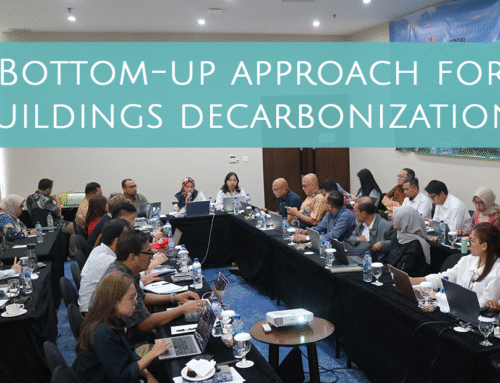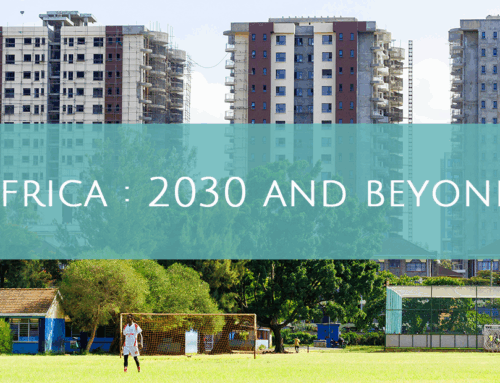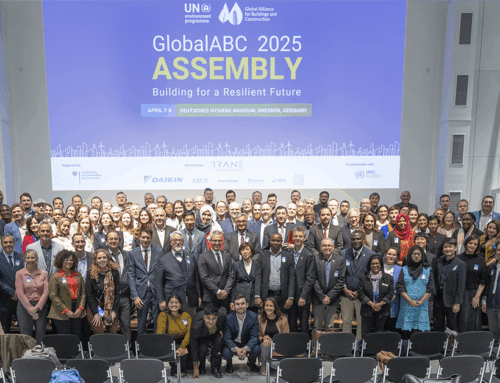On the road to Net-Zero, the private sector holds immense potential to drive meaningful change. But how do businesses, often driven by the bottom line, balance their financial goals with the pressing responsibility of climate action? GBPN Board Chair, Dr. Sunita Purushottam shares that while external forces such as regulatory compliances are nudging businesses to shift, most businesses are still focused on short-term returns and lack the know-how to implement changes.
Dr. Purushottam’s reflections on the private sector landscape are based on over 25 years of sustainability strategy and environmental consultancy experience across the UK, United States, Mexico, South Africa, and India. Her sustainability journey was sparked during her PhD while collecting data on and modelling air pollution in India. Across her career, she has worked with regulatory bodies and companies across construction, real estate, banking, automotive, steel and IT. She is currently heading Sustainability at Mahindra Lifespace Developers Limited.
Bold Moves in Building Decarbonization
Since 2013, Mahindra Lifespace Developers, under Dr. Purushottam’s leadership, has committed to a 100% green portfolio. As one of the first developers in India to receive Science Based Targets (SBTi) approval in 2019, the company has set the bar high. In 2021, they took the IGBC pledge for net-zero buildings, aiming for net-zero emissions for upcoming projects by 2030. “It’s a journey of increasing commitment because it’s the need of the hour,” says Dr. Purushottam. “As a developer, we feel responsible for the decarbonization of the built environment.”
Translating Opportunities to the Private Sector
Dr. Purushottam acknowledges the challenges companies face in embracing sustainability. “It has to be done with a lot of science. Solar energy, for instance, became a viable option only when it became cost-effective. The economic feasibility of sustainability solutions is crucial for widespread adoption in the private sector. Governments, policy decisions, and a supportive regulatory environment play pivotal roles in making sustainable choices the natural path for businesses and consumers.”
Market transformation cannot take place in silos, and there is a greater understanding that collective cooperation in the private sector is necessary. Mahindra Lifespace co-founded the Decarbonization Business Charter, a platform where 65 companies collaborate to promote building sector decarbonization in India. This initiative fosters knowledge exchange and best practices across the value chain, from innovative material developers to design firms, manufacturers, facility managers, and the hospitality industry.
Educating Consumers and Shifting Cultures
The benefits of sustainable buildings primarily accrue to end-users instead of developers. “Take the example of an Eco-Sewage Treatment Plant. The initial costs to the developer will be high, but we eliminate the need for annual treatment of the plant. Over the years, it will be safer, easier, and cheaper to operate.” Educating consumers about these benefits across the entire nation is crucial for fostering investment in net-zero buildings.
However, the educational gap may not be as large as imagined. Indians are already grappling with rising temperatures, plastic and air pollution, and climate-related health issues. “Short-termism, consumerism and a mindset of endless growth will have to be challenged for a cultural shift to take place,” Dr Purushottam remarked. She also pointed to India’s long history of indigenous and traditional practices, including in the buildings sector, that supports regeneration in place. “We need whole systems ecological thinking that attends to our needs instead of driving us to a vicious cycle of wants.”
Human-Centric Leadership in Action
The private sector’s role in decarbonizing the buildings sector is pivotal, and leaders like Dr. Purushottam are lighting the way. In describing her leadership style, Dr. Purushottam says “I like to attack the problem at the human level. I often find myself in deep conversations with my teams and suppliers to find out where people are in their sustainability journeys.” She often travels to contractor sites to initiate supply-chain conversations or influence projects by pitching them in healthy competition against one another to drive sustainability targets.
Through a combination of consistent and incremental interventions along the supply chain, Dr. Purushottam has witnessed the ball rolling. “Once you start seeing successes, you start building on them. I’ve waited years to find the right hydrogeology vendor, but when you see the service agreement signed you do feel like the process is shifting. It is extremely difficult, but my hope lies in these small successes” she said. “As you build relationships and trust, people get involved because they want to be a part of the solution”.
Share This Story, Choose Your Platform!
Stay in touch with how we’re transforming the buildings sector
GBPN runs innovative building policy reform programs in key regions around the world that aim to tackle the climate emergency by decarbonising the buildings sector. Stay up to date with our newsletter.
Stay in touch with how we’re transforming the buildings sector
GBPN runs innovative building policy reform programs in key regions around the world that aim to tackle the climate emergency by decarbonising the buildings sector. Stay up to date with our newsletter.







